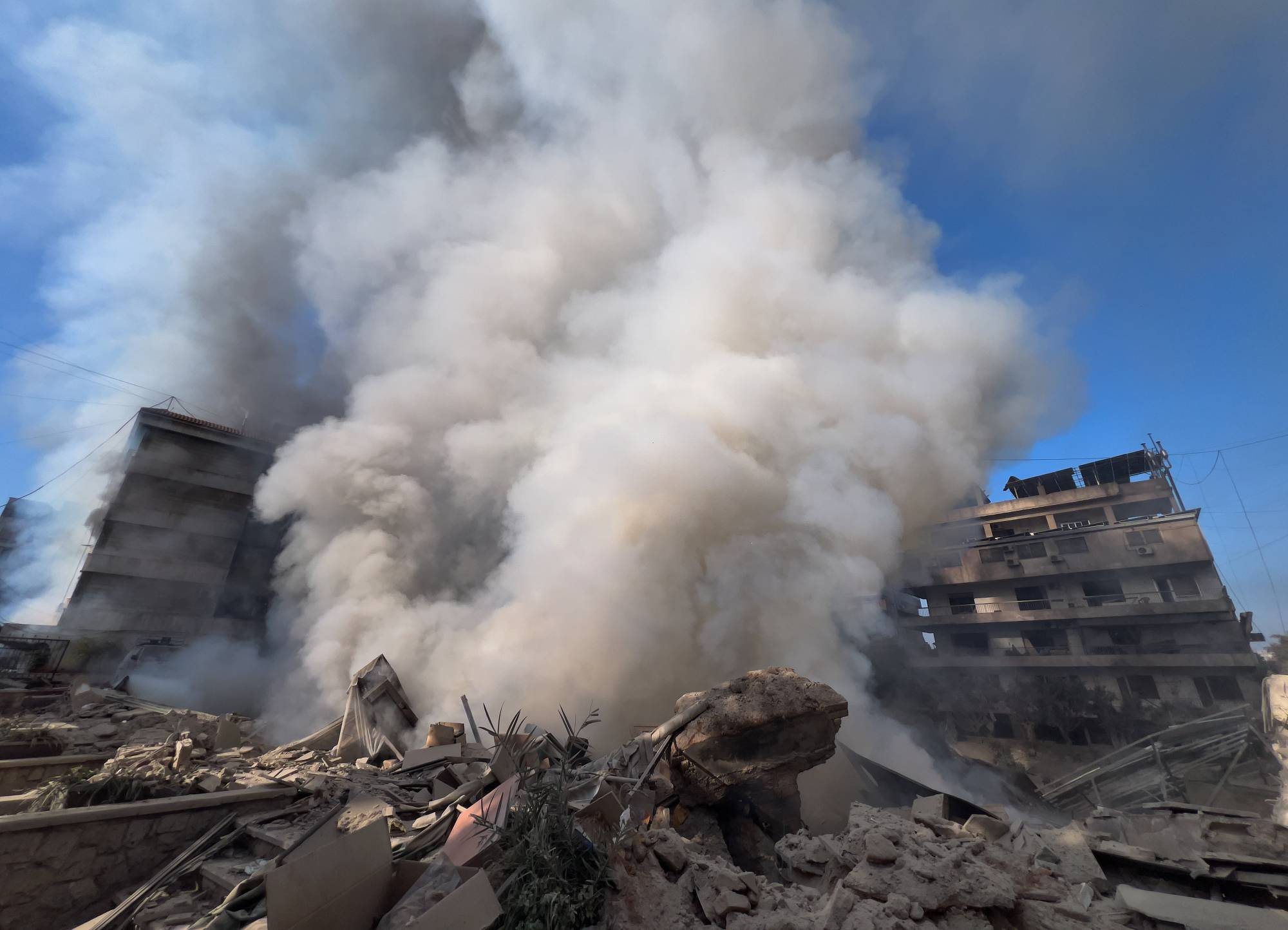The violent protests that erupted in Iraq among supporters of Iran’s slain Supreme Leader Ali Khamenei against US interests subsided on Monday.
It appears that a decision has been taken for the pro-Iran factions to rein in their reactions to give time for the resumption of communication with the Iranian Revolutionary Guards.
Restoring contacts will help put in place a plan for a possible long war against the US that covers a number of potential targets, some of which may be out of reach.
Influential leaderships ordered the angry protesters to withdraw from Baghdad’s Green Zone where they were trying to inch their way towards the American embassy. “An eerie calm has since been restored with the situation open for any scenario,” observers said.
The protesters had flooded the Green Zone soon after the confirmation of Khamenei’s death on Saturday. Security forces were clearly given an order to prevent them from reaching the US embassy, said an Iraqi official.
Overnight on Sunday, a number of protesters opened live fire at government forces. The Interior Ministry later said a “fifth column” had opened fire at security forces who were there to protect the protesters. Thirteen people were wounded in the unrest.
It did not detail how many were wounded by live fire shot by security forces, according to witnesses.
Various sources confirmed that the government, which is composed of various pro-Iran powers, had issued strict orders to prevent the protesters from breaching the embassy and to arrest any security leader who fails in preventing the launch of rockets and drones.
No leadership
Over the weekend, Iran’s supporters in Iraq acted without clear orders from their central command as the Revolutionary Guards were coming under Israeli and US attacks. What ensued were attacks against any target in Iraq and Kurdistan the factions could come up with.
American reports on Sunday said the Guards no longer have a central base for guiding operations, forcing allied factions to improvise in launching their retaliatory attacks.
Consequently, the factions hit the US Victoria base near Baghdad International Airport. In Basra, they attacked a system of radars; and in Nasiriyah, they fired booby-trapped drones at the Imam Ali base.
The capital of the Iraqi Kurdistan Region, Erbil, “paid the highest price” for Khamenei’s killing, said a Kurdish officer.
“The attacks have been countless. Drones are fired every hour,” he added.
The drone attacks focused on the new US consulate building and Harir military base, revealed American and Kurdish sources.
Calm
By Monday, the strict security measures around the Green Zone remained in place, but the angry factions, mostly Iran-aligned Popular Mobilization Forces, had retreated.
Observers believe Baghdad has entered a phase of “tactical calm” after the shock of Khamenei’s death. The Guards appear to be “catching their breath” and will begin resuming regular communication with their Iraqi agents.
Various sources said the Iraqi factions view Hezbollah’s attack against Israel overnight on Sunday as a sign that contacts had resumed between the Lebanese party and Iran. Tehran had ordered Hezbollah to act, and it did. A similar order will likely be issued to the factions in Iraq.
American estimates believe that the Iranian response to Khamenei’s killing will ease in the coming days due to logistical reasons or because Tehran will be preoccupied with the transition to post-Khamenei rule. Shiite circles in Iraq, however, believe that a long war is in store.
Secretary of Iran’s national security council Ali Larijani said his country has prepared itself for a long war more so than the US.
Target bank
Such a conflict demands a target bank that is not all within reach of the factions seeking to avenge Khamenei’s death, said a leading member of the pro-Iran Shiite Coordination Framework in Iraq.
The targets may include American interests that will harm Washington in the medium-term, such as the consulate and Harir base in Erbil and Victoria base in Baghdad.
In a longer war, the factions may target American investments in gas and oil fields across Iraq. An attack against the US embassy may be saved for a decisive moment in the conflict and will be decided by the Guards, said sources close to the factions.
The factions may also “relish” the idea of carrying out assassinations against the “enemies of Iran,” they added.
The unrest will pose the biggest challenge to Iraqi Prime Minister Mohammed Shia al-Sudani's caretaker government. It will find itself caught in the middle of Shiite factions that want to escalate the conflict against the US and an emerging Arab alliance that has been targeted by Iran’s attacks, said a former government official.










